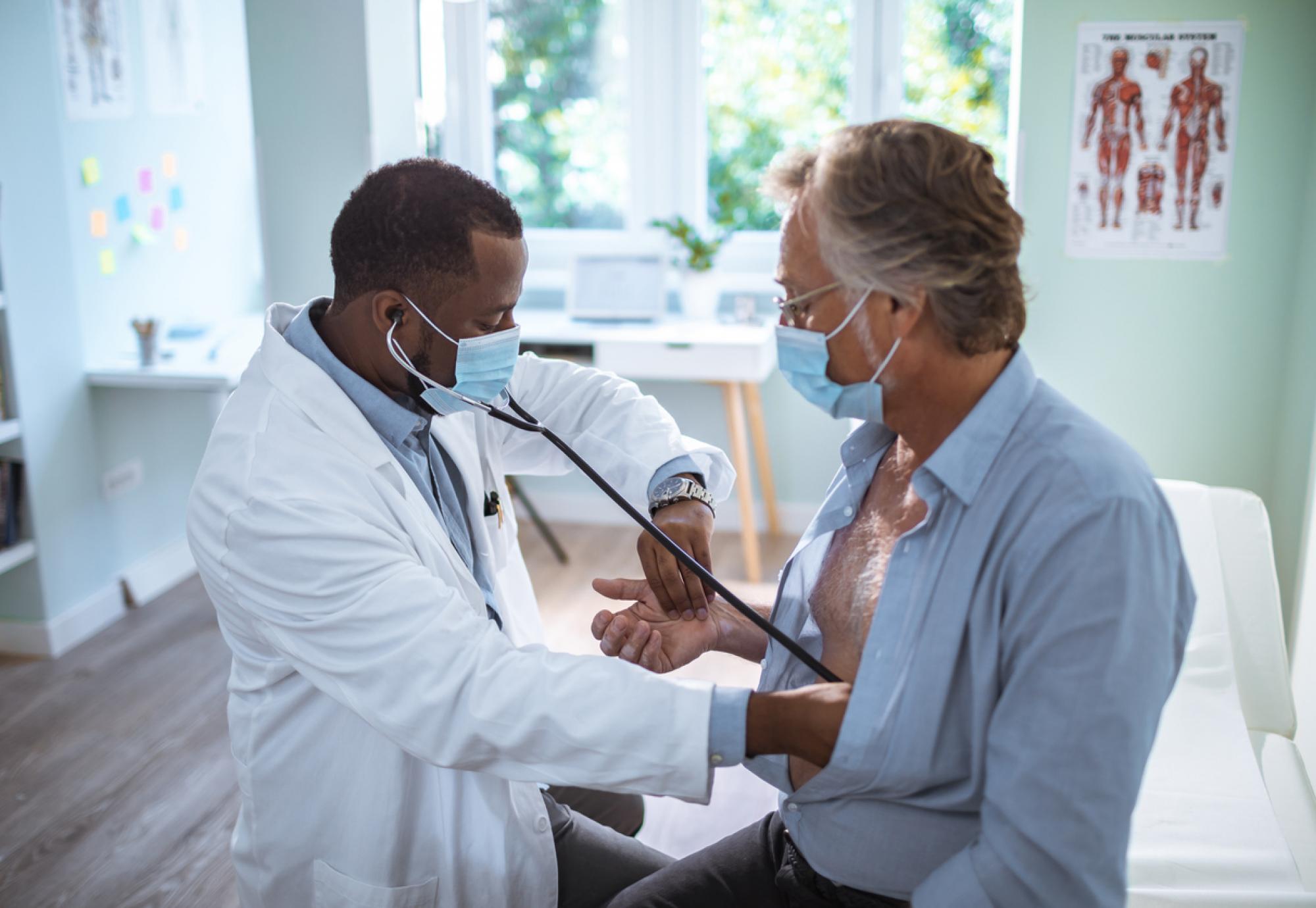A portable ECG that detects heart irregularities in minutes, is now due to be rolled out across the North East and North Cumbria.
During the start of the pandemic, Tees, Esk and Wear Valley NHS FT (TEWV) began using the portable ECG device within its community teams to monitor patients in their own homes. This was to ensure essential ECGs continued, while also being able to reduce the risk of Covid transmission through social distancing.
NHSX supported the work through funding the deployment of remote monitoring technology across the country, including a series of programmes in the North East and North Cumbria. This also enabled people to connect with others across the country and learn from each other’s experience.
Traditionally, patients undergo ECGs in a clinical setting using a large twelve-lead ECG, connected to the patient who is required to partially undress, have their skin prepared, with ten separate leads attached to their chest, legs and arms. The remote device is small and wireless, making it quicker and less intrusive, with the ability to take a reading in 30 seconds.
The trust monitored more than 300 patients, saving an average of 17.5 minutes per ECG. Staff and patient feedback has been overwhelmingly positive, with 100% of patients surveyed saying they preferred the new technology to the old approach.
NHSX subsequently provided implementation support funding and further funding for an extra 120 devices, to extend the roll-out across TEWV and Cumbria, Northumberland, Tyne and Wear NHS FT (CNTW), with support from the Academic Health Science Network (AHSN) for the North East and North Cumbria.
Charlotte Fox, Digital Transformation Lead at the AHSN, said: “The AHSN is delighted to have supported TEWV on this truly transformative digital innovation which was brought about due to the quick, innovative thinking of Dr Krishnan and his team.”
The device also helped protect mental health patients during the pandemic. It’s estimated that 400 mental health patients will now be monitored every month within their own home as the project expands.
Ms Fox explained: “We believe that the team is the first in the country, possibly the world, to use and evaluate the device for mental health patients in this way, which ultimately helped to keep patients safe and in their homes during the pandemic.”
Patients using certain antipsychotic medications require regular ECGs due to the possible risk of arrhythmias, which can cause convulsions, dizziness and fainting, and, in rare cases, sudden cardiac death.
The team at TEWV, procured 30 devices which were used to track the impact of antipsychotic drugs on a patient’s cardiac health within their home over an initial three-month pilot period.
Dr M Santhana Krishnan, Consultant in Old Age Psychiatry/Liaison Psychiatry at TEWV, said: “It’s very important that people taking antipsychotic medicines have an ECG before initiation and regularly thereafter. This device significantly improved the practical problems we encountered around the Covid-19 pandemic, specifically around clinically vulnerable people who were shielding.
“Monitoring a patient’s health in their own home is a much more comfortable and less intrusive way – and crucially gives us reliable data to keep people safe while they are taking these medications.
“Conducting an ECG as a part of a routine community visit rather than arranging a separate appointment improved efficiency and overall patient experience.”
Tara Donnelly, Chief Digital Officer, at NHSX, said: “Through the pandemic at NHSX, we have been helping scale new technology that allows clinicians to monitor and assess patients’ conditions remotely.
“More patients in the North East and North Cumbria requiring antipsychotic medication will now have their ECG recorded in their own homes and assessed remotely by clinicians that ensure their medication can be safely administered.”
Once the new monitoring technology is in use across the trust, 300 hours of clinical time is expected to be saved per month. It is estimated to save around 255 days of clinical time a year across the 85 teams who will be using the devices, which should deliver annual efficiency savings valued in excess of £300,000.



















